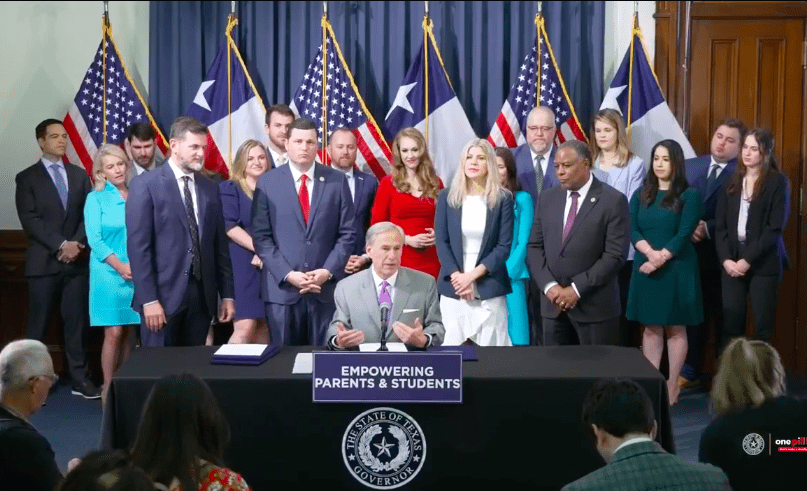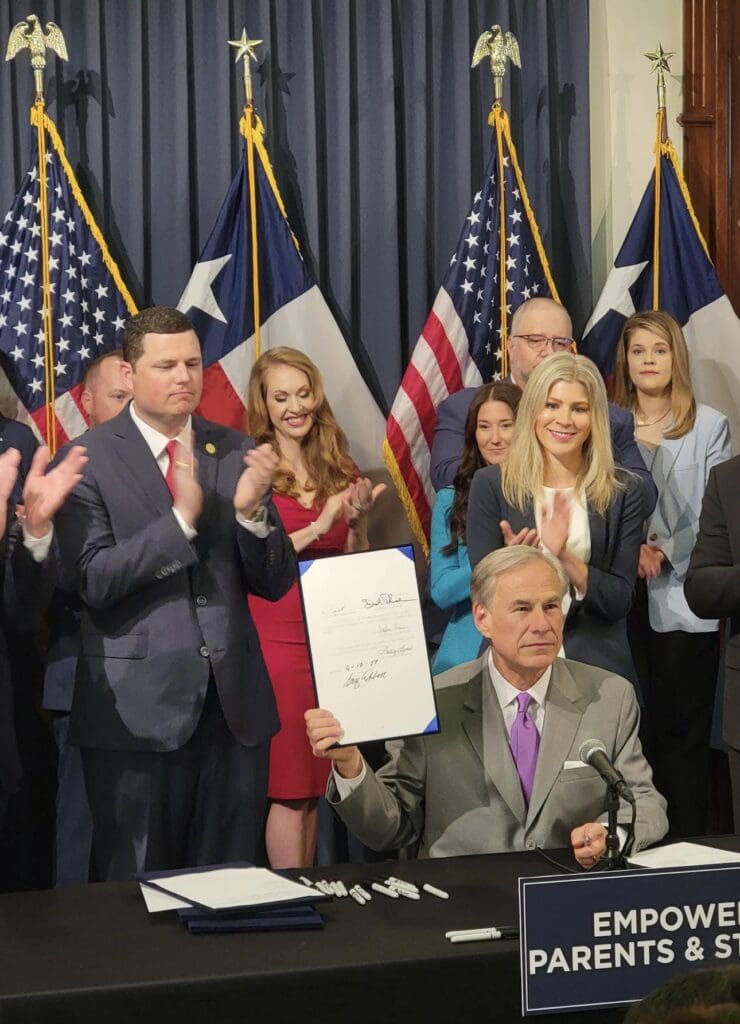Texas Gov. Greg Abbott signed into law four measures passed during the regular legislative session that he said provide “transformative changes” to improve the education process for parents, students, and teachers.
But the governor acknowledged lawmakers need to do more.
“To be clear, we’re not done yet,” Abbott said at a press conference on Monday to ceremonially sign the parent empowerment bills.
“We all know that in addition to the changes I’m about to sign into law, we need to deliver on the promise to parents that parents will have the ability to choose the education pathway best for their child,” he said.
The bills Abbott signed Monday will take effect on September 1:
House Bill 900 by State Rep. Jared Patterson (R–Frisco) prohibits school library material that is sexually explicit, vulgar, or educationally unsuitable.
“I’m signing a law that gets that trash out of our schools,” Abbott said. “Our students need materials that not only will educate them, but also prepare them to advance our state and our country.”
House Bill 1605 by State Rep. Brad Buckley (R–Salado) “transforms school curriculum” and “eases the workload for teachers, so they can spend less time gathering content and more time on instruction,” Abbott said.
He said the new law also ensures students are not exposed to ideological content and provides parents online access to view their child’s instructional materials.
Some parents objected to the bill’s emphasis on “open education resources” (OER)—instructional materials purchased or developed by the Texas Education Agency and made freely available to teachers. School districts are not required to adopt the OER curriculum but are incentivized to do so.
House Bill 1926 by State Rep. Lacey Hull (R–Houston) extends the state’s special education services program, created in 2020, by removing the $30 million cap on annual funding for the program.
House Bill 3803 by State Rep. Charles Cunningham (R–Humble) reinstates the ability of parent to determine whether their students repeat a grade level course for grades 4-8 or high school.
“Parents, not school administrators, should have that option to determine whether it’s in their child’s best interest,” Abbott said.
He said a common theme for the session that will continue going forward is that parents know what is best for their child.
On school choice, Abbott said he would “dig into all the details” during a later special session.
“We all know we’re going to be coming back into another special session, at the appropriate time, after we complete property tax reform and cutting property taxes across the state of Texas,” he said. “When that time comes, we will focus on parental empowerment as far as education is concerned.”
Abbott said the House and Senate “got far closer than what people know” on school choice legislation and noted that large majorities of parents and voters of all political affiliations support school choice.
But there’s something else just as important. The goal is more than just to deliver parents the ability to choose the school best for their child. Our goal is to improve education in the public schools across the state.
Abbott pointed to Arizona and Florida as examples of states with “robust” school choice programs that also have high-performing public schools.
Shortly after Abbott concluded his bill-signing, House Speaker Dade Phelan announced a new Select Committee on Educational Opportunity and Enrichment.
“With a special session on education matters all but certain, the select committee will begin working immediately to develop a workable roadmap for legislation in the House,” Phelan said.
Aside from school choice, public education advocates want lawmakers to pass parent-driven reforms that they failed to adopt during the regular session.






